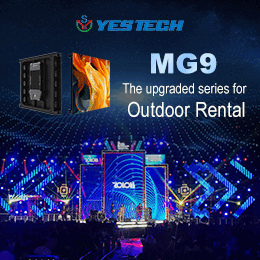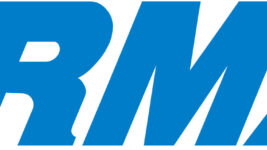Subscribe to CX E-News
Risky Business
by Simon Byrne.
The live production industry carries significant risk. Large amounts of equipment, temporary engineering, big power in use, time pressures and audiences combine to make an environment primed for an incident. Whether an injury, an event cancellation, equipment damage or theft, they all represent risk.
The riskiest of events are the outdoor ones because the weather cannot be controlled. This is why promoters should have weather insurance.
Weather Insurance
Promoters can take out two types of insurance for adverse weather. For both types, insurers will require that any stage areas at an event are to be covered on three sides and above, and all electrical equipment is to be protected from weather to the required industry standard (think Australian Standards).
The first and cheapest option is event cancellation and abandonment insurance which includes cover for adverse weather. This insures against most causes of cancellation or abandonment. The weather insurance cover provided is defined as severe weather causing safety concerns for those attending or participating which necessitates cancellation, abandonment or postponement of the event.
It does not cover for poor tickets sales, even as a result of rainfall causing discomfort, but not safety problems. That is, the promoter cannot claim because the punter turnout was low.
So what is adverse weather? Adverse weather is defined as extreme weather conditions which pose a serious threat to the safety of those attending the event. This also extends to the setup.
If the rig cannot be safely set up due to weather, a claim can be made. Loosely speaking, a threat to safety due to weather is defined as winds over 50 km per hour, or rain being blown into the stage from the front, thereby exposing equipment on stage to rain and risk of electrocution.
But, the burden of proving that the loss results from adverse weather falls upon the insured, so it is a big call for a promoter to make. If the promoter pulls the plug due to weather and his insurer disagrees with his call, the losses could be huge.
The second type of weather insurance is “Pluvius” Insurance. (Pluvius being the Latin word for Rain). This covers for rain only.
This style of insurance requires a pre-agreed measurement of rain to be exceeded during the insured hours for the policy to be operative. The event does not have to be cancelled for a claim to be payable. Premiums are calculated based on the historical rainfall statistics for the event location.
This is a more expensive form of insurance, but it does mean the promoter is covered for low ticket sales due to rain.
So if you are being contracted to do an outdoor event, it might be worthwhile asking the promoter what type of weather insurance they have. If they don’t have adequate cover, it will be up to them to pay you out if the event is abandoned due to weather.
You might not be comfortable with that risk. This highlights another risk in that promoters will occasionally incorporate a company just for a particular event. This company will not have any assets and therefore it is pointless to sue it. That is precisely the reason for the company’s existence, to protect the promoter from claims and in some cases, leaving contractors high and dry.
In this situation, you probably want director’s personal guarantees as part of a contract should your clients have this structure.
Public Liability Insurance
Aside from weather insurance for promoters, all businesses should have Public Liability insurance. It provides cover against common law breach of duty of care. This refers to the obligation to take responsible care to avoid injury to a person whom, it can be reasonably foreseen, might be injured by an act or omission.
A duty of care exists when someone’s actions could reasonably be expected to affect others.
Public Liability insurance protects you if your actions, your negligence or the condition of your property is found to cause a person to be injured or killed, or a person’s property to be damaged or destroyed or they suffer loss as a result of relying on your services.
It is really important. In my view, you would be crazy to run a business without it because a single claim could destroy you financially. But, Public Liability insurance does not protect you from everything.
It is important to understand that it is against the law for insurers to cover for illegal acts.
If they cannot provide cover, they certainly cannot payout if a claim is made which is as a result of an illegal act.
Say rigging were to fail that was knowingly installed illegally, the insurer won’t pay out! Simply because it is illegal rigging, it cannot be insured.
Adherence to Australian Standards is extremely important. Once again, if you supply cheap Chinese knockoffs that don’t adhere to Australian Standards which cause injury or damage, the Public Liability insurance could be voided.
Unless specifically stated, Public Liability insurance does not cover for contracted liability. This is important to appreciate because quite often you’ll be asked to take on liability in a contract, for which you will not be insured because most policies specifically exclude contracted liability.
Consider that you crosshire some lights and the hire contract states you assume full responsibility for the loss or damage to the lights, as well as any injury that could result from their use. Unless you have negotiated this with your own insurer, you might not
be covered because you have contractually assumed the liability from the hirer; a liability you otherwise would not have.
Another true case is where a Melbourne band hired a venue. As part of the contract the venue supplied the security staff, but the responsibility for the security staff was contracted to the band as part of the venue hire agreement. Another contracted liability.
Well, some of the venue’s security thugs bashed up a punter outside the venue and the punter sued the venue, but the venue deflected the claim to the band because they had contracted the responsibility for the security staff to them. A claim was made with the band’s insurer, but it was rejected as it was a contracted liability.
Venue hire contracts are particularly known for contracting out unreasonable liability to their clients. Insurers are especially wary of these because they are written by high-priced lawyers so they often contain clauses such as “the client indemnifies the venue for liability by any cause whatsoever”.
That represents huge risk for the client, potentially without cover from their insurer unless specifically agreed to, and insurers usually won’t agree to such open-ended clauses.
Rather scarily, some promoters run events without public liability insurance at all. Their argument has been that as long as all their contractors hold it, they are okay. This is naive because the courts can attribute blame for an incident to multiple parties.
For example, in an incident, the courts may attribute 60% of the blame to the promoter, and 40% to the production company.
There have been cases where workers for contractors who have suffered a workplace accident at a concert have been paid out by their employer’s workers compensation insurer. The employer’s workers compensation insurer then successfully apportions some blame to the promoter due to negligence, and therefore a claim is made on the promoter’s public liability insurance.
Public liability insurers are wising up to this and are specifically excluding WHS claims, or introducing very large excesses.
Clearly, you want proper workers compensation insurance in place to protect yourself from any workers compensation claims from your contractors.
Equipment Insurance
Equipment insurance is the comparatively simple side of the insurance industry, but once again it is all in the details.
Some hire companies only insure their equipment in their warehouses, and contract out the liability to their clients when it leaves. It is the cheapest way for them to insure
the equipment but it is not covered whilst in transit, and putting the responsibility onto the client is questionable because they are unlikely to have cover themselves, unless they have specifically taken out cover for the contracted liability for that hire. Seriously…who does that?
Other companies insure their equipment irrespective of whether it is out on hire or not. This is of course much better cover. Even with this, the insurance will not completely absolve the hirer of the reasonable duty of care to look after the equipment, but it does mean that the hirer is protected whilst out on hire or in transit.
If you are in the industry long enough, incidents are going to occur. It is important that you, your clients and your contractors have adequate insurance. When taking out insurance, it is essential that your insurer has a good understanding of your business, your activities, and any other information that might be important in providing proper cover.
This should be in writing so when a claim is made, the circumstances won’t be a surprise to the insurer. Things that need to be included would be for example, is the equipment left out overnight, do you need storm cover, who are your clients, what is your security and so on.
Don’t assume anything, declare everything, and read the contracts. Because our industry is so diverse, insurance cover is tailored to each client’s unique requirements. There will be exclusions in contracts that you should be aware of.
All insurance contracts have their own wording and may differ to this article. This article is of a general nature only, and could even be wrong in your circumstances. You should absolutely seek your own professional advice.
Thanks to Ken Killen from OzPrize & Weather Insurance Specialists for his assistance and wisdom putting together this article. Ken is the consummate entertainment industry insurance broker and all round good guy. Get him on 02 9785 3413 or kenkillen@ozprize.com.au
From the December 2018 – January 2019 edition of CX Magazine. CX Magazine is Australia and New Zealand’s only publication dedicated to entertainment technology news and issues – available in print and online. Read all editions for free or search our archive www.cxnetwork.com.au
© CX Media
Further reading from the CX Network:
Wind – A Lesson From Sandstone Point, by Simon Byrne (March 2018 #CX134)
2017 Structural Mishaps & Tragedies – Highlights (AESRG March 2017)
Wind – A Deadly Force by Simon Byrne – (AESRG Dec 2017))
Subscribe
Published monthly since 1991, our famous AV industry magazine is free for download or pay for print. Subscribers also receive CX News, our free weekly email with the latest industry news and jobs.













